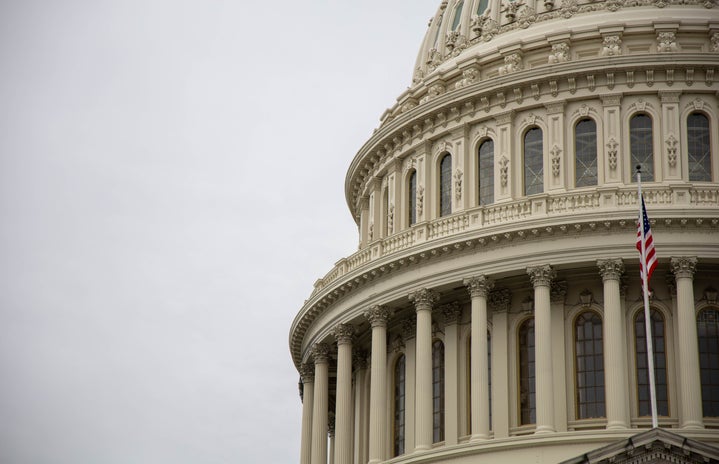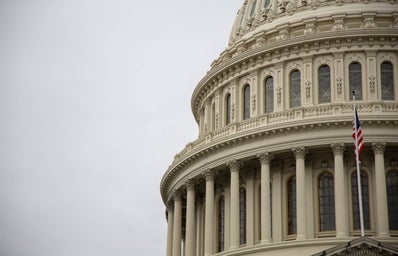The campaigning, debates, and debauchery have begun which can only mean one thing, it’s election season. Whether you like it or not your news feed has most likely become full of campaign trail coverage, debate commentary, and the usual tweets from our Commander in Chief. Although I’m not the most politically active individual, I do make an effort to stay informed. As a citizen of this country and current college student soon entering the workforce, I think it’s important to educate myself about our current state of affairs in order to make informed political decisions when I exercise my right to vote (for the first time ever!) this November.
As someone with a great deal of interest in fashion and style I can’t help but pay attention to the candidate’s clothing choices, in particular, the choices of our female candidates. Not just because I myself am a woman with an interest in fashion do I turn my attention to these female candidates. From a fairly young age, I think most women realize that what they wear says something about them whether they like it or not, and often our appearance can either add to or take away from our credibility in certain situations. Women in general, but especially women in politics, have always been highly scrutinized by their colleagues and by the general public for their clothing choices. Using this existing fixation upon what women wear to their advantage, female politicians can send a political message with their clothing.
During Hillary Clinton’s presidential campaign, we witnessed the phenomenon of the pantsuit. The feminized version of a traditional mens suit. Although I am very much a fan of tailoring and respect the construction of a good suit, I can’t help but to wonder why so many women in politics gravitate towards suiting as their first choice when selecting a style. Yes, suits do have an authority to them, but the source of their authority is due to the fact that they are historically a men’s garment. Strong, smart, respectable men who wear suits have strong, smart, respectable views and opinions… right? Is that why we see the pantsuit as our only option, as a way to blend into male dominated spaces while maintaining our femininity? This really has me wondering why we aren’t trying to bring the same authority to other garments, then giving ourselves a range of styles to choose from that don’t just consist of pants and a coordinating jacket.
Now, there are women in politics who have pushed the pantsuit to the side. An example is former Georgia representative and current candidate for governor, Stacey Abrams, known as a champion of the dress. Abrams has chosen to wear dresses throughout much of her political career, from campaign speeches to House meetings, you could find her in dresses of all colors and styles. Another woman who throws the pantsuit, and almost all other rules of dressing, to the wayside is Congresswoman Rosa DeLauro of Connecticut. DeLauro is known for her colorful hair, fun glasses, loud garments, and overall unconventional Capitol Hill style. Both Abrams and DeLauro have certainly had their fashion choices questioned throughout their political careers, but have remained true to themselves and their choices nonetheless.
When women do refuse to adhere to the traditional option of the pantsuit in governmental and other professional roles there is of course the risk of backlash and questioning. Women who may opt for dresses rather than pants, heels rather than a sensible flat, or a loud color rather than traditional suiting colors are often assumed to be superficial, and that they must value appearance over anything else. We make icons of first ladies like Jackie Kennedy for their iconic style and beauty, but shame women in politics when they take the same things into account. Fashion and style are rarely embraced by women in politics out of the fear of being labeled distracted or superficial, but the labels on the suits of their male colleagues are hefty in their own right.
Dressing as a woman, nevermind a political candidate, has always been complicated. And though I do recognize that some of the male power that a suit historically possessed has been diminished as the pantsuit has become so widely embraced by women. But, it’s conception was intended for women to blend in with men in the workplace, but blending in should not be on the agenda this time around. Female candidates need to start separating themselves in a real way, now more than ever, and I think ditching the pantsuit is a step in the right direction.



